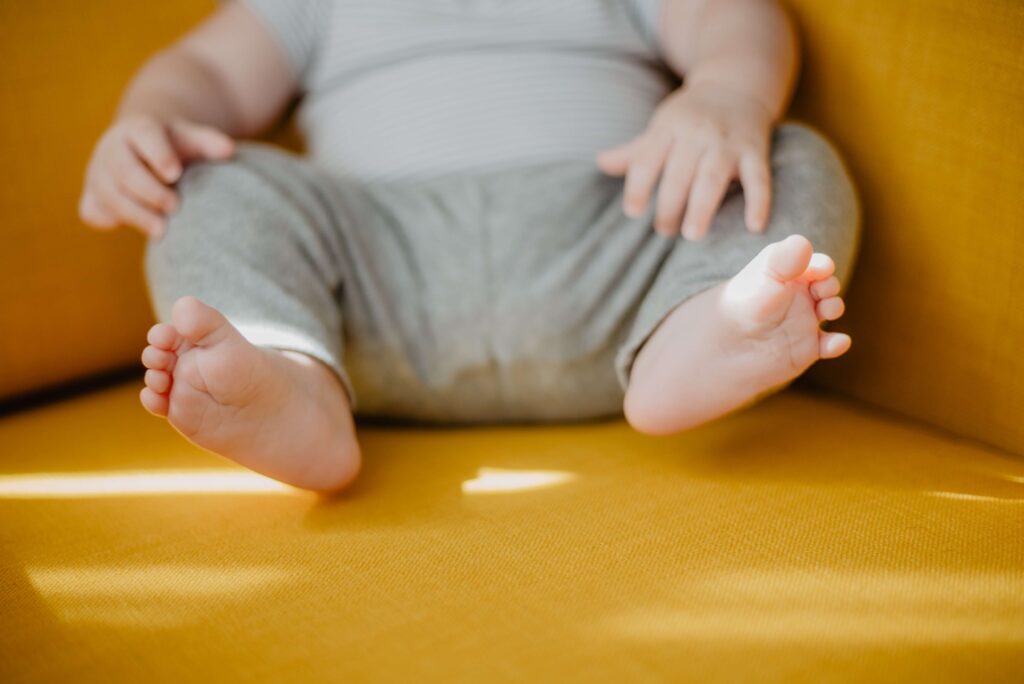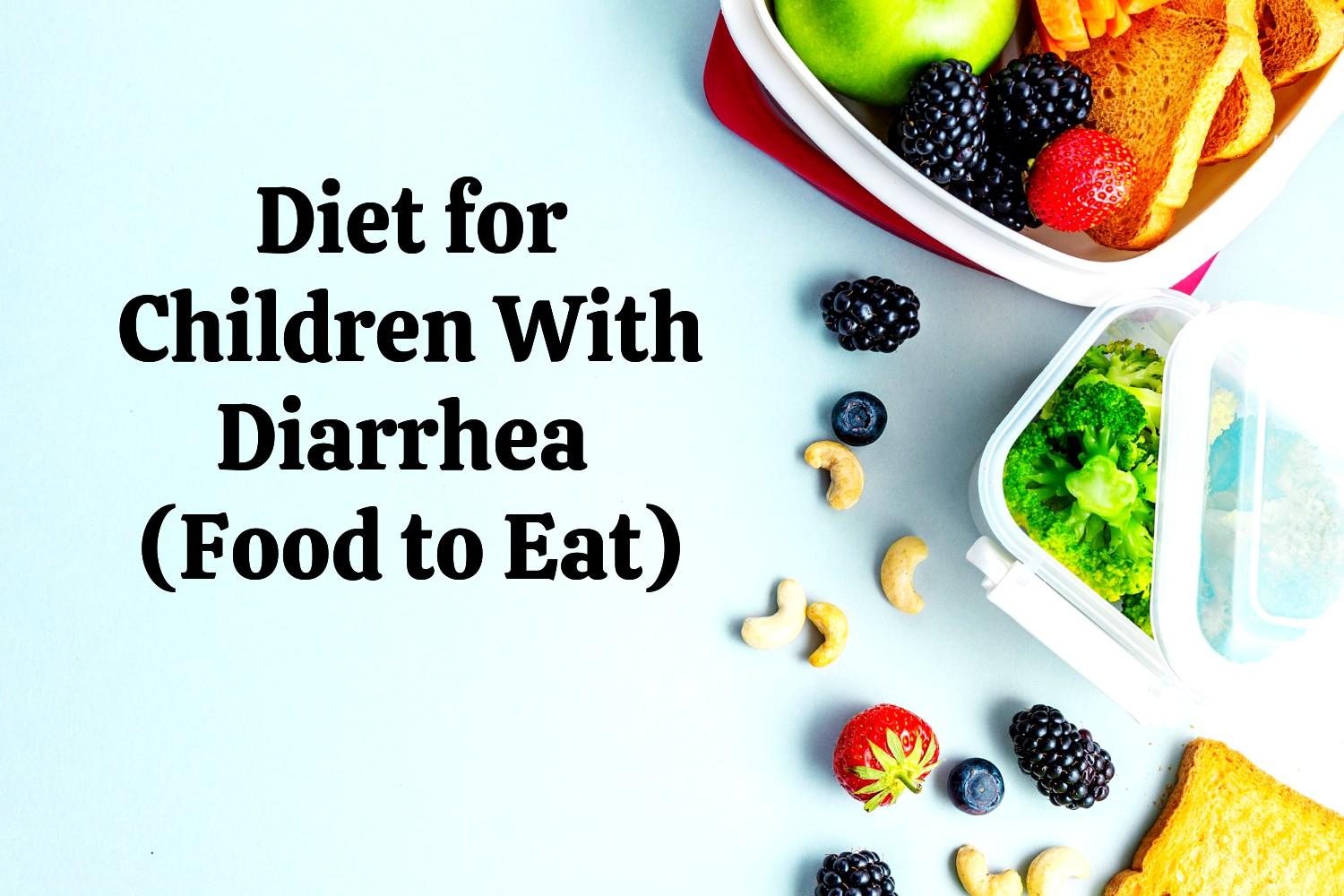The worst time being a parent is when their kids are sick, especially with young kids. They cannot talk about where the pain is and how much pain is. The most and only thing they do, is crying. Whether they’re just feeling a little under the weather or have a more severe illness, you want to do everything to help them get better. One of the things you may be wondering about is what kind of diet is best for your sick child. After all, what they eat can play a significant role in recovering quickly. Around 13.5% of all children worldwide experience abdominal pain regularly – stomach problems like diarrhea cause a good percentage of that pain. And while it’s usually not serious, it can be very unpleasant for your little one. If your toddler has diarrhea, what should you feed them? And what should you avoid? Here’s a look at what experts recommend.
Table of Contents
What Causes Diarrhea in Toddlers?

Many different things can cause diarrhea in toddlers. Some of the most common include:
- A viral infection, such as the stomach flu: Let’s start with the most common cause of diarrhea in toddlers – stomach flu. The disorder may cause severe diarrhea and sometimes pain. However, it usually goes away on its own within a few days.
- A bacterial infection: This problem can occur when contaminated food or water bacteria get into your child’s system. It can also be passed from person to person through close contact, and bacterial infections usually require antibiotics to clear up. One of the possible reasons can also be Salmonella.
- Food allergies or intolerances: If your child is allergic or intolerant to a particular food, eating that food can cause diarrhea. Make sure you know what your child’s allergies or intolerances are so you can avoid those foods.
- A change in diet: If the toddler suddenly starts eating many new foods, that can also lead to diarrhea. This is especially true if they’re not used to eating that type of food or if their diet is usually very bland.
- Medications: Some medications, such as antibiotics, can cause diarrhea as a side effect. If you think your child’s diarrhea may be due to their medication, talk to their doctor.
- Celiac disease: This is a severe condition that can cause severe diarrhea and other problems. If you think your child may have celiac disease, it’s essential to see a doctor.
- Stress: Emotional stress can sometimes lead to stomach problems like diarrhea. If your child is under a lot of pressure, talk to their doctor.
In most cases, diarrhea will go away within a few days for toddlers and continue with . However, it’s essential to ensure your child stays hydrated and doesn’t become dehydrated.
Food to Feed Toddler With Diarrhea
When your child has diarrhea, you want to feed them foods that are easy to digest and that will help firm up their stool. Here are some examples of what you can provide your toddler:
- Rice: Rice is a bland, starchy food that’s easy to digest, and it can also help firm up your child’s stool.
- Applesauce: This is another bland food that’s easy on the stomach. It also contains pectin, which can help firm up diarrhea.
- Bananas: Bananas are a good source of potassium, essential for preventing dehydration. They also contain pectin.
- Toast: Toast is a bland food that’s easy to digest and can help soak up excess water in the intestine, helping firm up stool.
- Soup: Clear soups are a good option because they’re easy to digest and can help keep your child hydrated.
- Crackers: Crackers can help settle your child’s stomach and are easy to digest.
Food to Avoid for Toddler With Diarrhea
There are some foods that you should avoid giving your toddler when they have diarrhea. These include:
- Dairy products: Dairy can be hard to digest and may make diarrhea worse.
- Fatty foods: Fatty foods can be challenging to digest and worsen diarrhea.
- Spicy foods: Spicy foods can irritate the digestive system and worsen diarrhea.
- Sugary foods: Sugary foods can contribute to dehydration and make diarrhea worse.
What to Feed Children Diarrhea at Different Ages
The main goal of what to feed toddler with diarrhea is to prevent your child from dehydrating. Therefore, it’s essential to make sure they’re getting enough fluids.
- Continue breast-feeding or formula milk.
- Offer your toddler small amounts of rice, applesauce, bananas, toast, crackers, and soup.
- You can also give them Pedialyte or an electrolyte drink to help prevent dehydration.
The Importance of Fluids
It’s important to feed water toddler with diarrhea to ensure your child stays hydrated when they have diarrhea. They may not feel like eating, but getting fluids into their system is essential. Some good options include:
- Water: Water is the best fluid for preventing dehydration.
- Clear sodas: Clear sodas can help settle your child’s stomach and provide electrolytes.
- Sports drinks: Sports drinks can help replenish electrolytes.
- Oral rehydration solutions: These solutions contain a balance of fluids and electrolytes and can help prevent dehydration.
When to Seek Medical Attention for Your Toddler
Most cases of diarrhea will go away on their own within a few days. However, there are some cases where you should seek medical attention for your child.
You should take your toddler to the doctor if they have the following symptoms:
- Bloody stool
- Signs of dehydration like excessive thirst, dry mouth, sunken eyes, not urinating
- Fever over 102 degrees Fahrenheit
- They’re vomiting
- Stop gain weight
Conclusion
Diarrhea is a common problem in toddlers, but it’s usually not serious. Most cases will go away on their own within a few days. However, it’s essential to ensure your child stays hydrated and doesn’t become dehydrated. If you’re concerned about your child’s diarrhea, talk to your doctor.
About Me
Hi, there. I am Lin. Together with my husband and two kids, we live in the beautiful Netherlands in Europe. I am dedicated to self-development, creating quality time for the whole family, and fully supporting kids with their potentials with all I have learned from engineering, MBA, and 10+ years of working experience in the energy sector.


